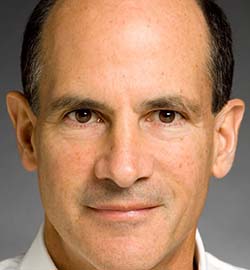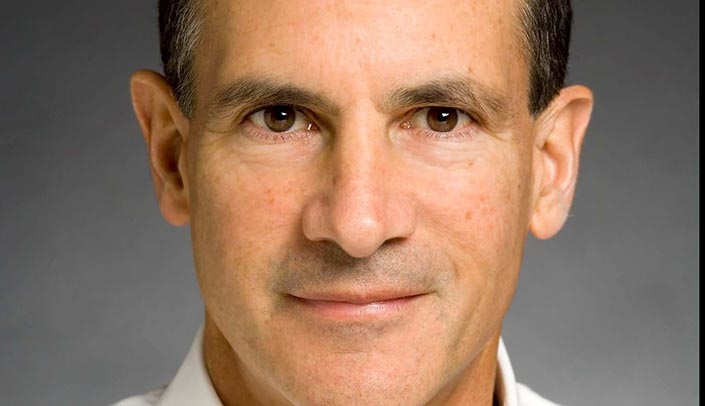Thomas Rando, M.D., Ph.D., who has spent his career studying the biology of aging, said there’s no easy answer to delaying the aging process. He and his lab continue to conduct scientific studies into the secrets of aging. But, he said, multiple studies suggest a balanced diet, not eating too much and exercise can have a profound impact on one’s health and life span.
 |
Thomas Rando, M.D., Ph.D. |
In mouse models, he and his team found a way to heal wounds faster and learned how to make stem cells in old muscles like stem cells in young muscles. They also have found factors in the blood of young animals that might be important in promoting a youthful state and are hoping to translate this into something therapeutic for humans.
Dr. Rando was guest speaker for the annual Denham Harman, M.D., Ph.D., Lectureship in Biomedical Gerontology at UNMC on April 6.
“I think it’s becoming increasingly common that the interest in studying aging is not to have people live longer, but to have people live better,” Dr. Rando said. “It’s really about what we call health-span, which is the idea that we’re not looking to have people live to be 150, but to live their normal lives in a healthy state and avoid the ravages of age-related diseases and degenerative diseases.”
Having studied aging for decades, he said it comes down to things your mother would have told you, such as diet and exercise.
“Keep a balanced diet and don’t eat too much,” Dr. Rando said.
He echoed the health warnings about sitting for extended periods.
“I think there’s very good evidence for what is now termed sedentary behavior — which I and many people are guilty of — that not getting physical activity can have negative effects on health. Prolonged sedentary behavior seems to change the way certain muscles in our body are metabolically active in a way that can actually negate the benefits of physical activity.”
This has led to increased interest in things such as stand-up desks and wearables that tell you to stand up, Dr. Rando said.
To keep the workforce healthier, he suggests that schools and workplaces should change the way people spend their days and structure the environment so people don’t just sit all day.
“One hopes that becomes the norm.”
